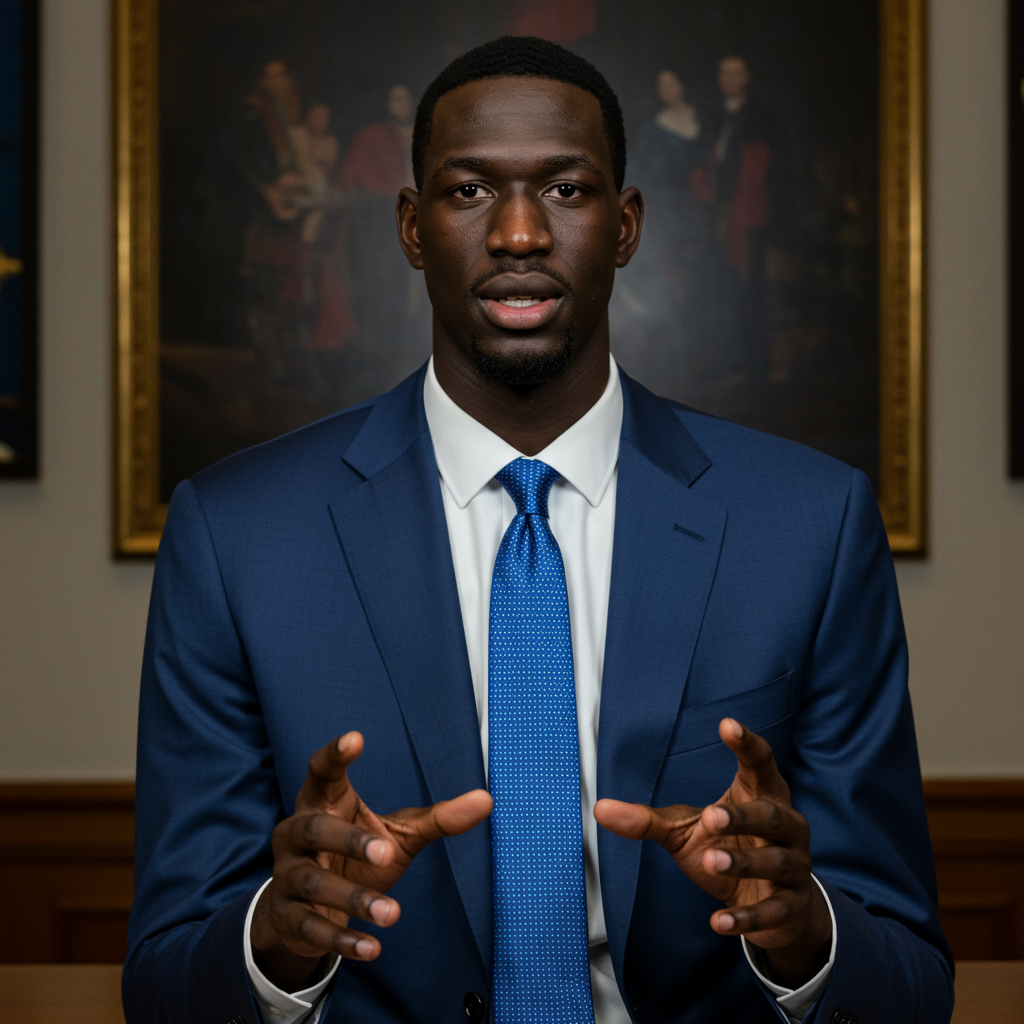NBA Dream Deferred? Not for Khaman Maluach.
Just hours before the biggest game of his college career, Duke center Khaman Maluach, a towering 7-foot-2 prospect with nimble feet and shot-blocking prowess, faced a challenge far greater than any opponent on the court. On April 5, 2025, the U.S. State Department announced a sweeping revocation of visas for all South Sudanese passport holders. For Maluach, born in South Sudan and raised in Uganda, whose immense potential had him squarely on the radar for the upcoming NBA draft, this move threatened to derail his dream before it even began.
Yet, despite this significant hurdle, Maluach heard his name called tenth overall by the Phoenix Suns in the NBA draft held at Barclays Center. His journey from uncertainty to draft night is a testament to his talent – and the crucial, often unseen, work of a specialized division within the NBA dedicated to navigating the complex world of international travel and immigration.
The Visa Challenge That Threatened an NBA Career
Maluach’s path to elite basketball began in Uganda, where he primarily played soccer until discovered at age 12 by an NBA scout in Africa. This led him into the NBA’s global pipeline, including the NBA Academy in Senegal and playing in the Basketball Africa League. The league’s international operations team had already been facilitating his travel between countries for camps and showcases, paving his way to Duke University.
He arrived in the U.S. for his freshman season on an F-1 student visa. While he remained legally in status after it expired thanks to university documentation, the State Department’s action against South Sudanese passport holders created immense uncertainty for his future. With the draft less than three months away, questions swirled: Could he even be eligible to play in the U.S. if drafted? The situation highlighted a growing global reality: while leagues like the NBA expand their international footprint, immigration processes worldwide are becoming increasingly complicated.
The NBA’s Secret Weapon: International Basketball Operations
Fortunately for Maluach and a growing number of global talents, the NBA anticipated this complexity decades ago. As the league exploded internationally following the 1992 “Dream Team” Olympics – growing from just 21 international players to a record-tying 125 from 43 countries last fall, accounting for nearly one-third of the league – the logistics became paramount. This globalization has profoundly reshaped the game, with foreign-born stars claiming 10 of the last 21 MVP awards, including the last seven consecutively.
Handling the intricate details of bringing this global talent to the U.S. falls to the NBA’s International Basketball Operations (IBO) division. This dedicated team of 38 staff members, operating from offices in 14 countries, possesses deep expertise in immigration law and visa issues.
“People always ask me: ‘What do you do at the NBA? What do international basketball operations do?’” says Troy Justice, the NBA’s senior vice president and head of international basketball. “And we say we make dreams come true. We give people an opportunity that wouldn’t have it otherwise.”
The IBO’s workload has ballooned from roughly 400 cases annually to well over 2,000, a clear indicator of the increasing challenges in global travel and immigration. Their work requires cultivating close relationships with governments around the world, starting with the United States.
Navigating the Visa Maze to Draft Night
The IBO team was actively involved in Maluach’s case even before the visa revocation. When the April 5th announcement came, they were already preparing paperwork for a B-1/B-2 business tourist visa for him, which remains pending. With his selection by the Phoenix Suns at pick No. 10, the focus shifts to securing the appropriate professional athlete visa, typically a P-1 visa for players drafted by U.S.-based teams.
While Maluach was never considered in danger of deportation, U.S. policy changes regarding South Sudan added layers of complexity. Any future international travel required for NBA games – such as playing against the Toronto Raptors in Canada – would necessitate additional steps and interviews at a U.S. embassy for him to re-enter the country. The league begins by filing a petition covering the length of the player’s initial contract, but each re-entry requires further processing.
Living in the U.S. while holding a passport from a country facing such restrictions creates significant uncertainty. However, the NBA has worked to mitigate this for its athletes. The league successfully lobbied the U.S. government for a “national interest” exemption in 2020, designed to help athletes in major sports competitions navigate travel restrictions, including those imposed during the pandemic. As immigration consultant Travis Murphy notes, this blanket exemption provides a degree of relief for athletes compared to other individuals facing similar visa challenges.
A Lifelong Commitment Beyond the Court
The NBA’s investment in players like Khaman Maluach extends beyond just securing visas. It’s part of a broader, decades-long commitment to developing talent globally through initiatives like youth academies, Basketball Without Borders camps, and professional leagues abroad like the BAL. Troy Justice emphasizes that the league views its relationship with these international players as “lifelong commitments.”
Brendan McKillop, who first met Maluach as a raw 14-year-old, highlights the young player’s remarkable humility despite a challenging life journey from South Sudan to Uganda and then relocating thousands of miles away for basketball. Maluach’s selection in the NBA draft is not just a personal triumph, but also “the culmination of years and years of work for our NBA Academy staff based around the world,” McKillop said.
Ultimately, Khaman Maluach’s path to becoming the 10th pick in the NBA draft required overcoming significant geopolitical obstacles. It was the diligent, behind-the-scenes work of the NBA’s international basketball operations team – experts in navigating global bureaucracy and fostering government relationships – that ensured a visa crisis didn’t stand in the way of a remarkable young player’s dream.



